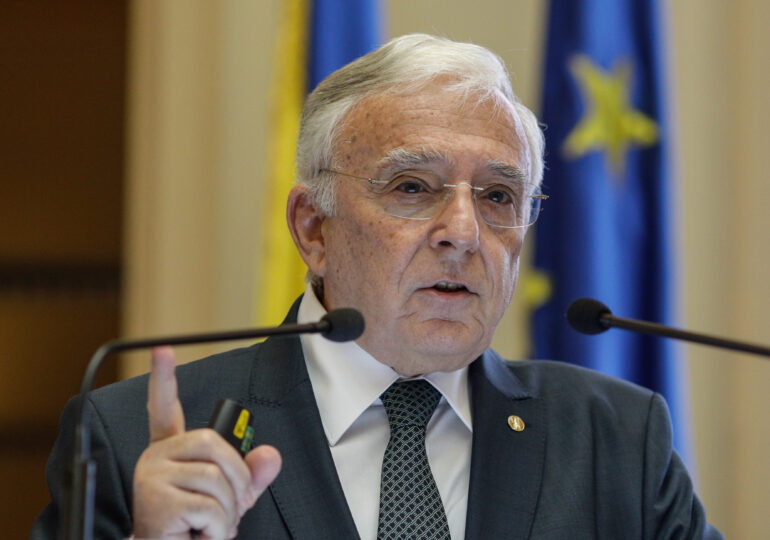The National Bank of Romania (BNR) has significantly revised its inflation forecast for 2025, from 4.6% to 8.8%, announced Governor Mugur Isărescu.
He specified that Romania’s economy is currently facing several major shocks and warned that inflation could reach over 9% by the end of the year, peaking in September.
"In September, the peak will probably be, instead of 9%, around 9.6-9.7%, followed by a gradual absorption of these shocks, and indeed, in our forecast, by the end of next year, inflation will not only enter the targeted range, but will be even lower than the inflation forecasted in the previous inflation report. In other words, pay attention to the figures.
At the end of the year, 8.8%. It will probably exceed 9%. And we maintain the 3% forecast from December 2026, slightly below the data from the previous forecast. Three major shocks that will be absorbed in the near future, if we avoid side effects. The deterioration of inflation expectations is not easy after such price hikes. This is the forecast, so we have a nice hump, so to speak, it is even slightly larger," added the BNR Governor.
How can we avoid recession
Isărescu believes that in order to avoid recession, it is essential to increase the absorption of European funds.
"For the first time in many years, 4-5, we have entered a situation of aggregate demand deficit, with expectations of deepening this deficit. From the perspective of global demand, inflationary pressures are decreasing. (...) We have a rebound in investments in the first quarter of 2025, after the sharp contraction at the end of the previous year, as a premise for accelerating the absorption of European funds.
And, if we opened this subject, I believe it is essential, if we want to avoid recession, to accelerate, to increase the absorption of European funds. Based on them, we would have economic growth, lack of inflationary pressures, and appropriate financing in terms of balance of payments," said Mugur Isărescu.
The current account deficit continued to deepen, including as a result of the deterioration of secondary income balance, Isărescu also stated. And the exchange rate was used in the second quarter as a "relative anchor" for economic stability, financial stability, market stability.
Weather has increased food prices
According to Isărescu, in the second quarter, especially extreme weather phenomena have led to an increase in prices for vegetables and fruits. And labor force has been one of the pressure factors.
Isărescu does not believe that BNR will further adjust the key interest rate this year.
"We hope not to do that. It would be good to have a degree of social cohesion that does not force us to take such measures. Because these fiscal decisions have been painful," he stated.

